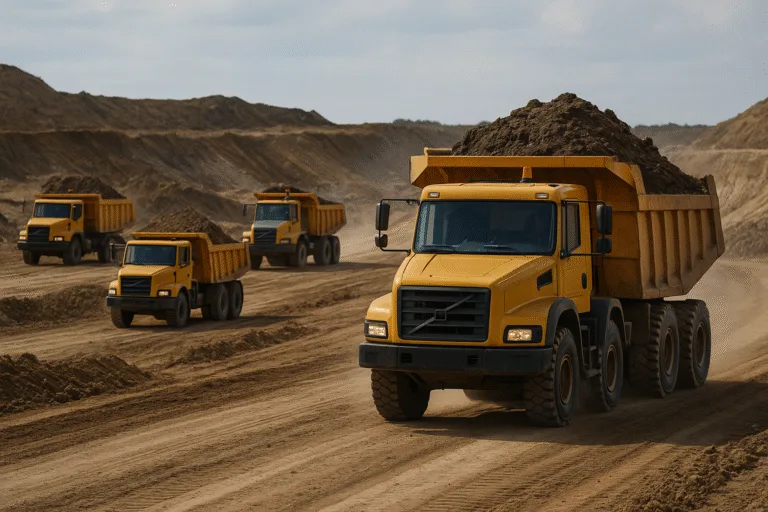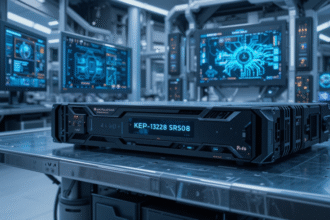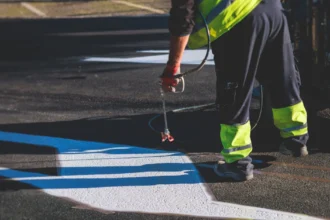Acting as a logistical middleman between clients and truck operators, a dump truck broker plays a vital role in coordinating the timely and efficient transportation of bulk materials. This article explores the ins and outs of dump truck brokering, what services these brokers provide, why they’re crucial to various industries, and how to choose the right one for your project.
Understanding the Role of a Dump Truck Broker
A dump truck broker connects two parties: the client (typically a construction firm, developer, government agency, or subcontractor) and the carrier (an independent dump truck operator or fleet). The broker arranges the transportation of materials from one location to another, ensuring compliance, cost-effectiveness, and timeliness.
Much like freight brokers in the trucking industry, dump truck brokers don’t own the trucks themselves. Instead, they maintain a network of trusted operators and match them with available hauling jobs. Their goal is to streamline logistics while saving both time and money for clients and drivers alike.
Core Responsibilities Include:
- Coordinating delivery schedules
- Negotiating rates and terms
- Managing dispatch and routing
- Handling contracts and documentation
- Ensuring compliance with regulations
- Addressing safety standards and insurance coverage
- Managing real-time communication between all parties
In fast-paced industries where time is money, having a dedicated expert to manage these tasks adds significant value.
Why Dump Truck Brokering Services Are Essential
Many construction and infrastructure projects rely heavily on dump trucks to move raw or excess materials. Whether it’s hauling gravel to a construction site, removing demolition debris, or delivering fill dirt for landscaping, having the right truck at the right time is essential.
Here’s why hiring a dump truck broker makes strategic sense:
1. Time and Resource Efficiency
Contractors often juggle multiple responsibilities on job sites. Searching for available trucks, verifying credentials, and negotiating prices can be time-consuming and inefficient. A broker eliminates this hassle.
2. Access to a Wider Network
Dump truck brokers work with a wide range of haulers. This ensures quick turnaround times, even for urgent or large-scale jobs. Brokers can often locate trucks that individual contractors may not know exist.
3. Cost Savings
Because brokers understand local market rates and work with multiple operators, they can negotiate competitive pricing. They also reduce the risk of delays and equipment downtime, both of which are costly to projects.
4. Improved Compliance and Safety
Reputable brokers vet carriers for proper licensing, insurance, and safety records. They make sure that trucks meet Department of Transportation (DOT) regulations and any other legal requirements.
5. Scalability
Brokers allow businesses to scale operations easily. Whether you need one truck or a fleet of twenty, they can adjust according to your project’s scope.
Who Uses Dump Truck Brokers?
A wide range of professionals and organizations rely on dump truck brokers to meet their material transport needs. Common clients include:
- General contractors
- Excavation and grading companies
- Road and highway builders
- Government and municipal agencies
- Demolition contractors
- Land developers
- Aggregate suppliers
- Landscape construction firms
These clients count on dump truck brokers to ensure that their operations run smoothly without having to manage the transportation themselves.
The Types of Dump Trucks in Broker Networks
A dump truck broker typically has access to a diverse fleet of trucks, each designed for specific types of materials and project requirements:
- Standard Dump Trucks: Ideal for short-haul projects, equipped with a hydraulic bed that lifts from the front.
- Articulated Dump Trucks (ADTs): Commonly used in off-road construction and mining environments.
- Transfer Dump Trucks: Feature separate trailers that allow for greater hauling capacity.
- Side Dump Trucks: Offer efficient unloading and increased stability during operation.
- Bottom Dump Trucks: Suitable for spreading materials like gravel or asphalt along a roadway.
- Super Dumps: Designed to carry heavy loads while complying with weight restrictions.
By understanding the specifications and capabilities of each truck, brokers can assign the most efficient equipment to each task.
How the Dump Truck Brokerage Process Works
Understanding how a broker operates can help you use their services more effectively. Here’s a step-by-step overview:
1. Initial Request
A client contacts the broker with a haul request, detailing the type of material, quantity, pickup and drop-off locations, preferred schedule, and any job-specific requirements.
2. Rate Quoting and Negotiation
The broker provides a quote based on distance, load size, availability, and truck type. Rates are negotiated to match the client’s budget while offering fair compensation to the hauler.
3. Carrier Assignment
Once approved, the broker assigns the job to a vetted carrier who matches the job’s criteria. The broker provides dispatch instructions and coordinates scheduling.
4. Execution and Tracking
On the scheduled day, the truck(s) carry out the job. Some brokers offer GPS tracking or real-time updates to clients, ensuring accountability.
5. Confirmation and Billing
Once delivery is confirmed, the broker handles documentation, invoicing, and any necessary compliance paperwork.
Technology in Dump Truck Brokering
The modern dump truck broker isn’t just making phone calls and writing on whiteboards. Many now use logistics and fleet management software to streamline processes:
- Digital platforms for load posting and matching
- Mobile apps for drivers and clients
- GPS tracking for real-time delivery updates
- E-signature and invoicing systems for faster payments
- Analytics dashboards for reporting and performance metrics
This tech-driven approach enhances transparency, accountability, and scalability.
How to Choose the Right Dump Truck Broker
Not all brokers are created equal. When selecting one for your project, consider the following:
1. Industry Experience
Choose a broker who has deep experience in construction, excavation, or materials transport. They’ll better understand your challenges and needs.
2. Carrier Network
Ask how many haulers the broker works with and the types of trucks available. A large, diverse network means better availability and flexibility.
3. Compliance and Insurance
Confirm that all carriers are properly licensed, insured, and vetted. Ask about the broker’s process for verifying compliance.
4. Technology and Communication
Do they offer tracking? How do they communicate project updates? Choose a broker that uses tools to keep you informed and efficient.
5. Client References
Ask for testimonials or references. A quality broker should have a track record of satisfied clients.
Dump Truck Brokers and the Future of Material Logistics
As construction and infrastructure demand continues to grow, so too does the need for efficient material hauling. Dump truck brokers are poised to play an even larger role in:
- Sustainable logistics: Matching loads more efficiently reduces carbon emissions.
- Disaster recovery: Quick mobilization of trucks can support emergency cleanup and rebuilding.
- Smart jobsite coordination: Integration with project management software allows real-time logistics planning.
In a world where deadlines are tight and margins are thinner, smart hauling logistics are no longer optional—they’re essential.
Final Thoughts
When bulk material needs to be moved, every minute and every load matters. A dump truck broker bridges the gap between job site demands and the trucking supply chain, ensuring materials arrive on time, on budget, and in compliance with all regulations.
By leveraging their network, experience, and technology, dump truck brokers simplify one of the most logistically complex aspects of construction and excavation work. Whether you’re handling a massive infrastructure project or a local grading job, having a broker on your team gives you the flexibility, reliability, and cost control you need to succeed.













